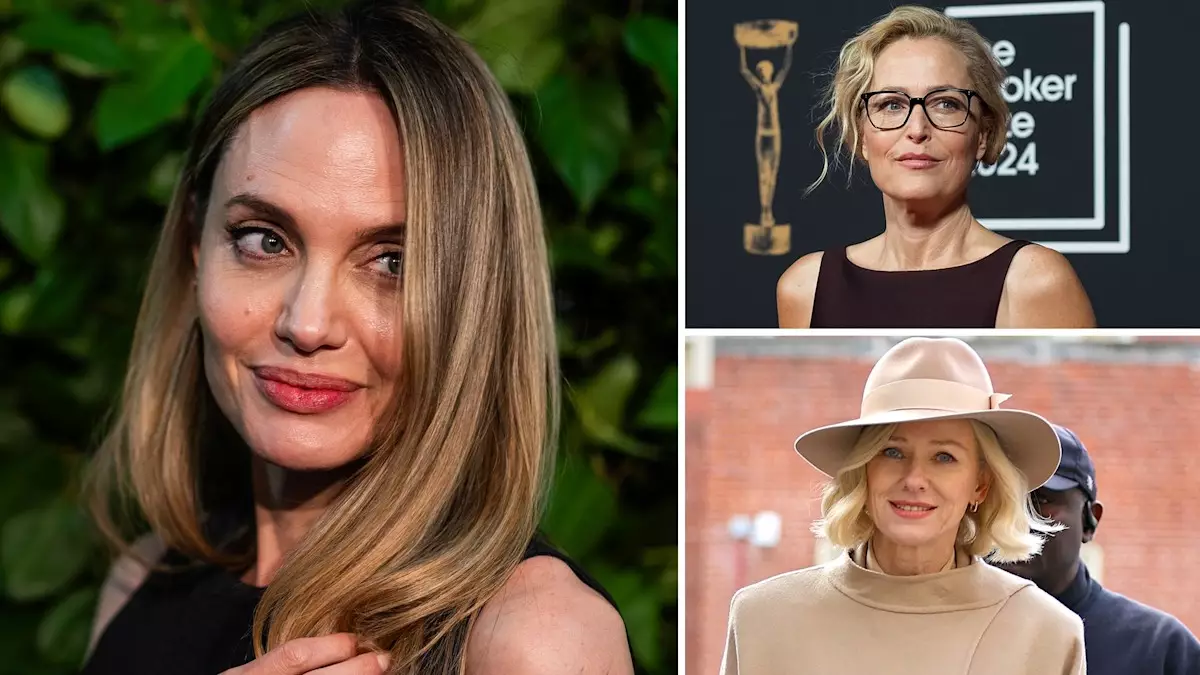For years, the term ‘menopause’ has held a stigma in Hollywood that discouraged open dialogue among celebrities, let alone the general public. The fear of aging and the negative perceptions associated with this life stage led many stars to steer clear of discussing menopause. Consequently, this avoidance created a ripple effect, fostering a cultural climate where women felt uncomfortable acknowledging their own experiences. As society grapples with the complexities of aging, it is imperative to confront the misconceptions surrounding menopause and pave the way for a more accepting narrative.
Fortunately, a growing number of celebrities are now boldly stepping forward to share their personal narratives about menopause and its early onset, which, astonishingly, can begin as early as one’s 30s. A recent survey conducted by Oova, a company specializing in home hormone testing, highlights this issue. Their research, which involved 700 women across all fifty states, revealed that 25% of participants reported the emergence of perimenopausal symptoms before the age of 35. This alarming statistic underscores the urgency for robust discussions about menopause’s impact on women’s lives.
Among those leading the charge in breaking the stigma is actress Naomi Watts, who faced the realities of perimenopause at just 36. In her recently published book, *Dare I Say It, Everything I Wish I’d Known About Menopause*, Watts shares her tumultuous journey through early perimenopausal symptoms. “Experiencing menopause at such a young age was incredibly daunting,” she confided in an interview. Symptoms such as mood swings, night sweats, and debilitating migraines created a sense of chaos in her life, drawing attention to the profound lack of resources available for women navigating this transition.
Watts’ account resonates deeply with many who find themselves at a similar crossroads, as Dr. Amy Divaraniya, founder of Oova, emphasizes the significance of awareness. “Perimenopause often goes unrecognized,” she states. More than 60% of women surveyed remained uncertain whether they were entering this phase, indicating a crucial need for education and conversation. As such, it is vital to dismantle the misconceptions encircling menopause, as nuanced discussions can empower women to recognize and understand their experiences.
Actress Gillian Anderson, who encountered early perimenopause, reinforces the importance of shared experiences. By voicing her frustrations and fears about sudden mood changes, she found solace in the support of her friends. “It was during a moment of personal crisis that I learned my hormones were at play,” Anderson revealed in an candid discussion with journalist Jennifer Nadel. The overwhelming nature of her symptoms magnified her feelings of helplessness, acting as a catalyst for her journey toward understanding.
Anderson’s openness about her struggles signifies a shift in the narrative surrounding menopause. “Imagine a world where we could all discuss these changes without shame,” she muses. By embracing their vulnerabilities, women like Watts and Anderson cultivate a sense of community and belonging, ultimately encouraging others to speak up about their experiences. This transformation in dialogues about menopause can undoubtedly enhance societal perceptions and dispel the frights surrounding aging.
Prominent figures like Angelina Jolie have also taken the helm in the fight against the stigma associated with menopause. Her candidness about her own experience serves as an inspiration, encouraging women to reframe how they perceive aging. Jolie’s advocacy challenges the notion that aging equates to a loss of value or vitality. Instead, it promotes a perspective where menopause is recognized not as an end but as a transformative journey that holds the potential for personal growth.
In reflecting on the collective movement toward acceptance, it becomes evident that perimenopause and menopause should not be shunned but celebrated. As more celebrities share their stories, the hope for a future where women’s health issues are discussed openly and without societal pressure becomes increasingly attainable. The dialogue surrounding menopause is changing, and with it, an evolving understanding of its inherent role in women’s lives signals much-needed progress towards a more inclusive and empowered narrative.

